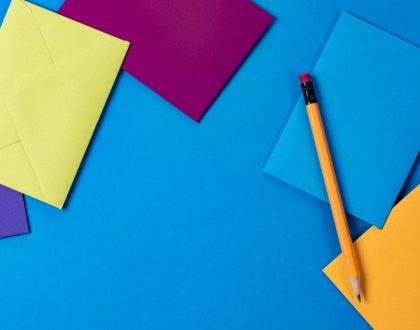So you failed a test. Congratulations! In failing, you’ve joined the ranks of nearly everyone else on Planet Earth, including some of the brightest minds out there. There are countless quotes, stories, and books and dedicated to lessons learned and progress made because of failure. How we try, fail, and try again defines each of us. So embrace it, learn from it, and let us help you get it right next time.
WHY, WHY, WHY?!
There are many reasons you might have failed your test. Maybe you ran out of time. The test could have been a lot more challenging than you expected. Perhaps you just had an off day. Regardless of the reason, your next attempt will come down to your familiarity with the material and your state of mind on the big day. So, let’s break it down into actions you can take before and during your test.
Our tips are based on a key set of learning strategies that Professor Barry Zimmerman of The City University of New York and Anastasia Kitsantas of George Mason University attributed to academic success after a comprehensive study of 507 high school students.
BEFORE THE TEST
Kill all distractions. With most of us already buried in our phones, this one can be especially difficult. No matter where you’re studying, turning your phone and other unnecessary devices completely off will help tremendously when it comes to truly focusing. From there, make sure your study space is quiet, comfortable, and all yours. Remember that fully recovering from a distraction takes minutes, not seconds. Plus, distractions can prevent you from reaching the “flow” (highest) state of concentration. Keeping others informed of your study needs and proactively preventing distractions will make a noticeable impact on your learning efficiency.
Get outside of your head. The key to academic success is retaining what you’ve learned. Try writing, rewriting, and even vocalizing the material. These exercises can make a huge difference when it comes to retention. Keep in mind that strictly memorizing words offers little staying power.
Rather than just going over the notes you already have, reorganize them. Think of yourself as a curator in charge of pulling all of your typed and handwritten notes into one place. Once it’s all together, look for fresh ways to connect the dots in a comprehensive way. This act will force you to truly interpret the material, and therefore gain more familiarity with it.
Don’t be afraid or embarrassed to rehearse material, notes, and answers out loud. Actually having to talk it out will quickly lead you to the areas you need to work on. Plus, it can help you think about any complex theories or topics in a more approachable way.
Learn selfishly. If you’re unsure how the topic at hand applies to the real world, or even how it might apply to your life, research it to learn more. If you have questions or issues with how the material is being framed or presented to you, pursue those curiosities. Having a critical eye will inherently get you closer to the material, and might even spark creative ideas for answering test questions.
Also, remember that lesson plans and assignments are boilerplate starting points for getting through course material. From there, it’s up to you to customize how you will best absorb the knowledge. If outlining lessons in an unconventional way helps you understand them, go for it. No two brains are the same, and they shouldn’t be expected to work the same. Don’t hesitate to follow what works for you.
Be patient. In a world filled with instant gratification, focusing on one topic for hours can feel overwhelming. But like any skill, there are no shortcuts to studying. Understanding this from the beginning can help you budget your time, letting you digest your lessons in small, bite-sized chunks. A slower, steadier, more routine study regimen will always leave you more prepared than cramming and stressing at the last minute.
DURING THE TEST
Mind your body. Many students forget how important their state of mind is on their test day. Get a full night’s sleep, eat well, and be sure to stick to a healthy routine on the days leading up to your test. Doing these things will help you feel comfortable and confident as you dive into the questions.
Breathe. It sounds cliché, but it’s true. Breathing can be a very effective way to manage stress and anxiety during a test. If you’re stumped or frustrated, take a few seconds to breathe in, breathe out, and regroup.
Go back in time. When you hit a particularly challenging question or section, take yourself back to your study space. Start with visualizing anything you remember about the topic. Triggering your memory in a general way can be a powerful kick-starter for tapping into more specific facts and solutions. When it’s on the tip of your tongue, it’s probably on the tip of your brain too.
Good luck preparing for your next test! For good measure, here are a few of those quotes we mentioned at the top of this article:
“Failure is an event, not a person.” – Zig Ziglar
“I have not failed. I’ve just found 10,000 ways that won’t work.” – Thomas A. Edison
“Success is stumbling from failure to failure with no loss of enthusiasm.” – Winston Churchill
“There is only one thing that makes a dream impossible to achieve: the fear of failure.” – Paulo Coelho










